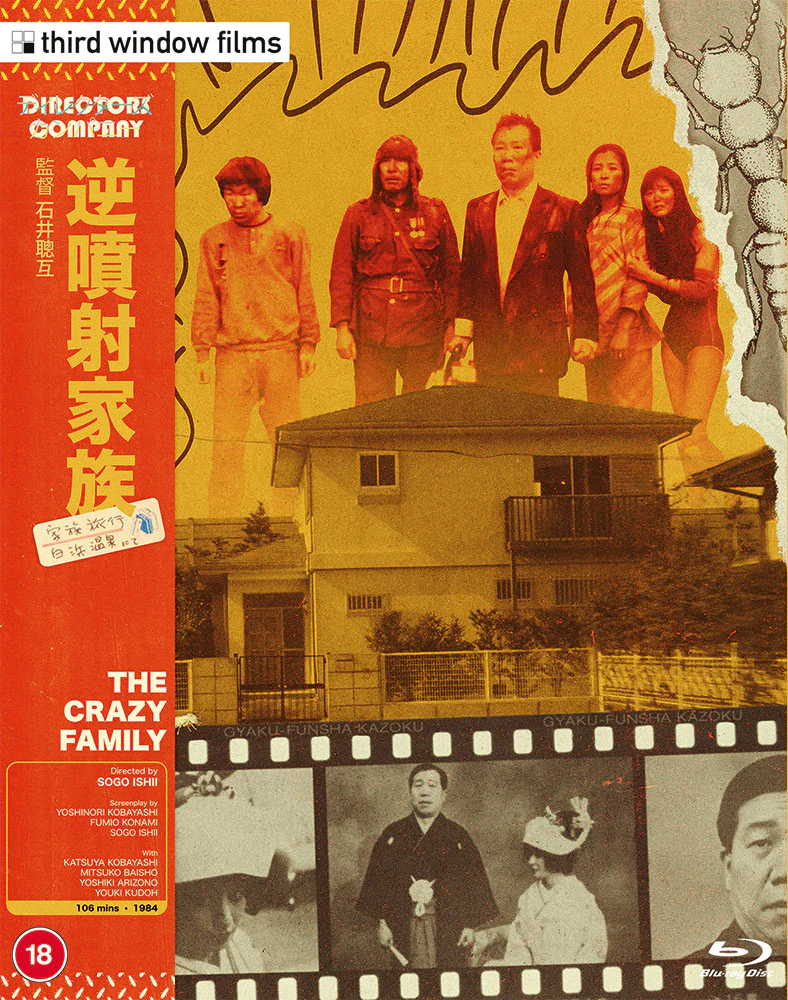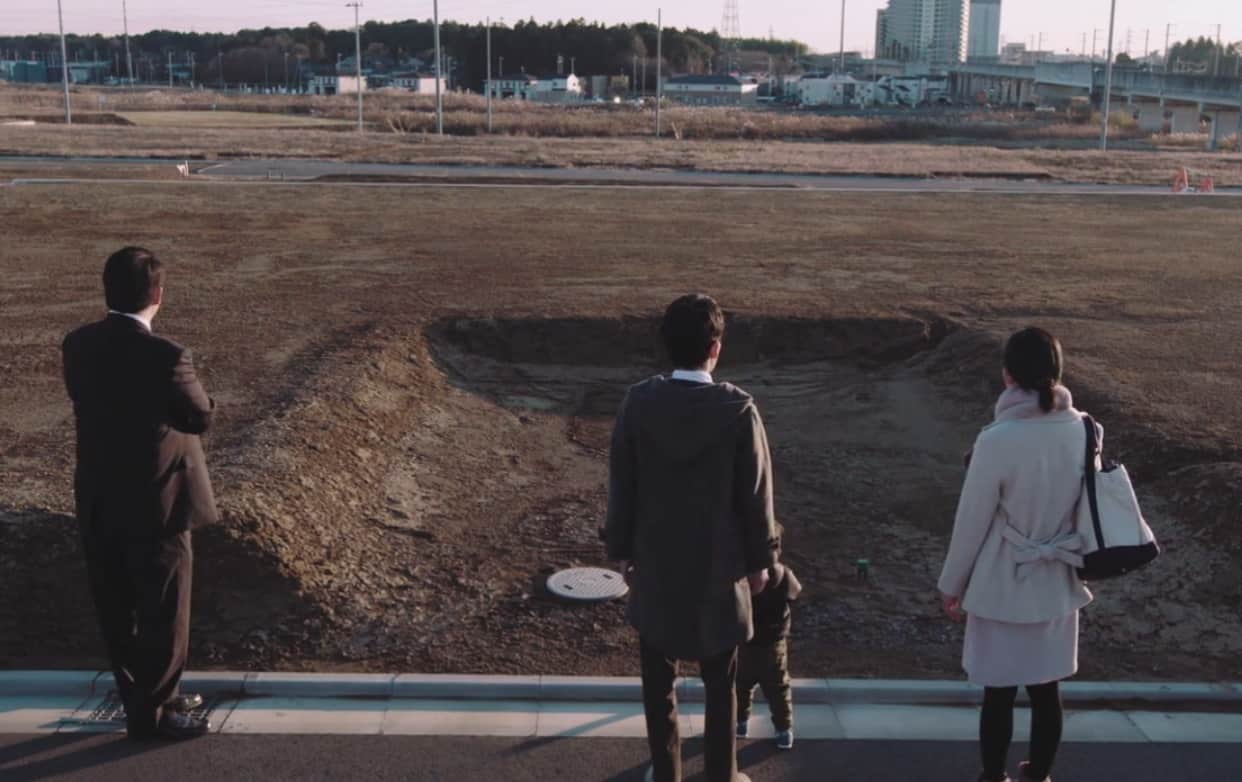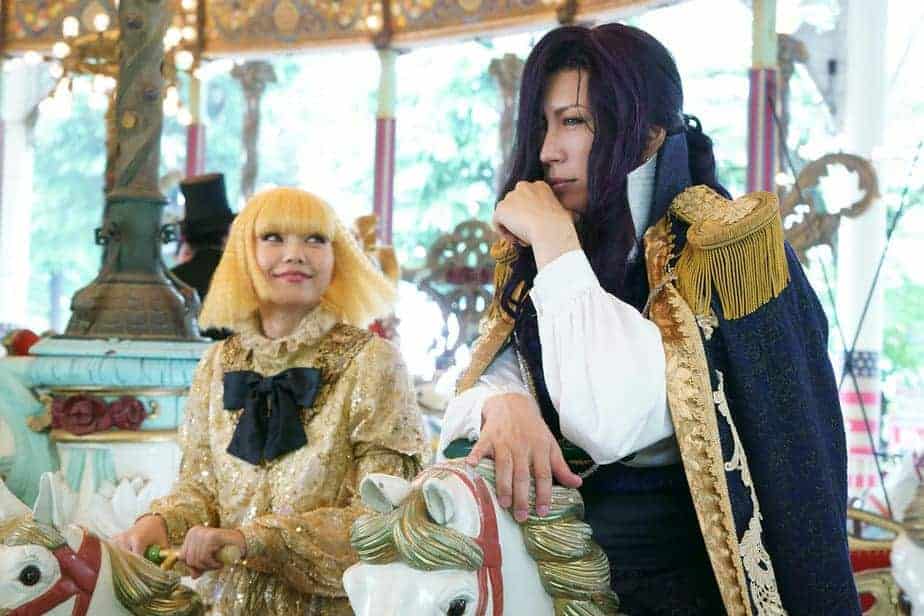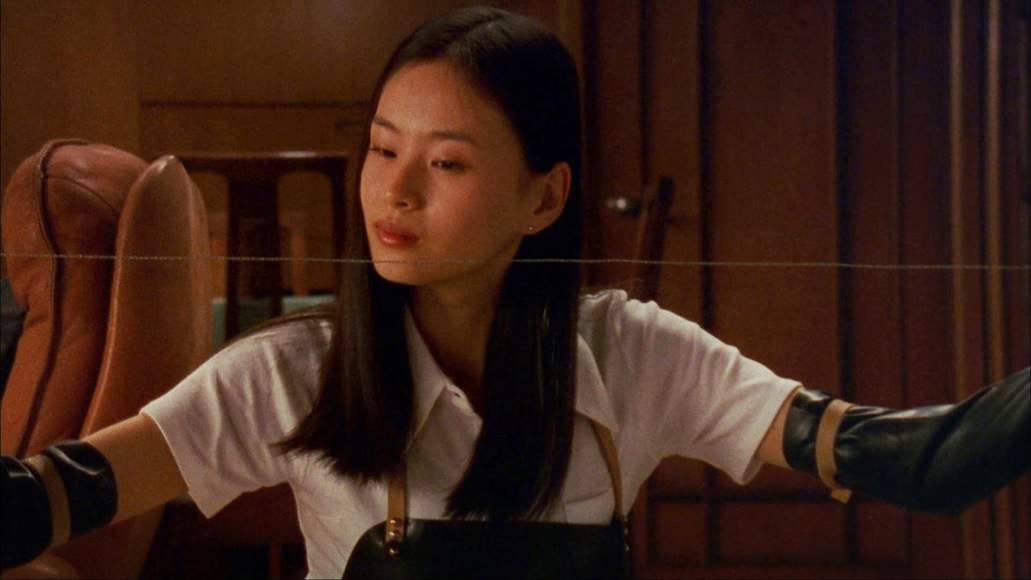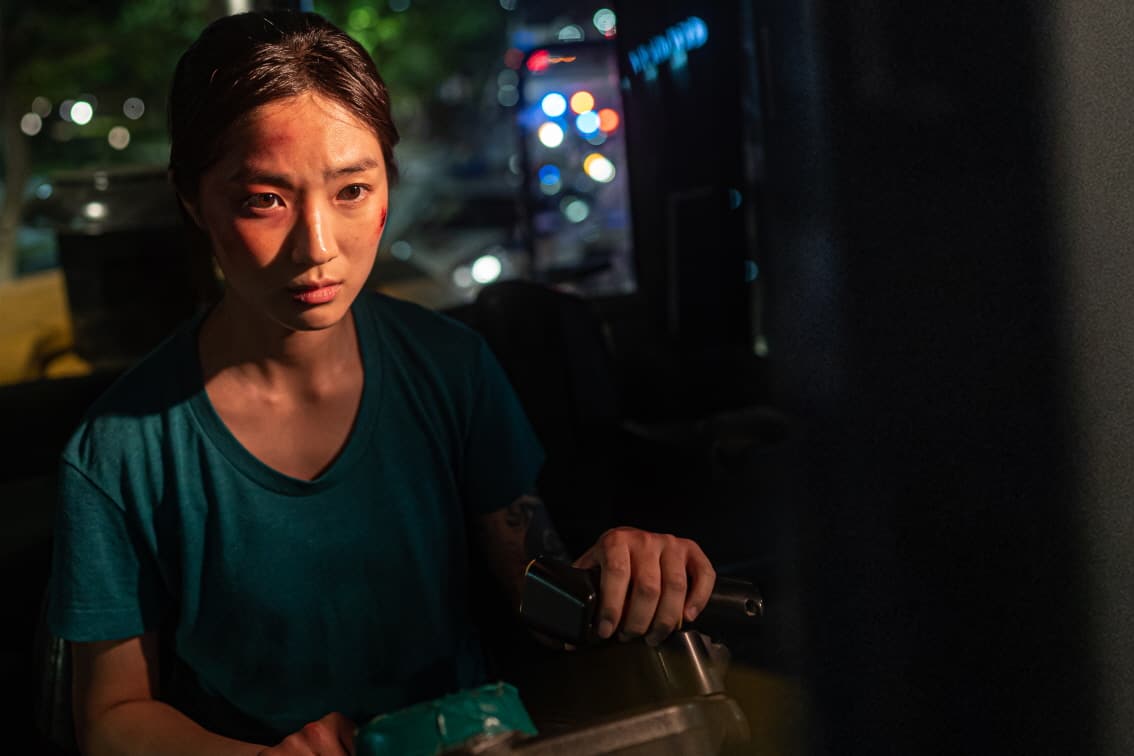In a cinema that is famous for its extremity and peculiarity, Sogo Ishii manages to stand out, with films like “Burst City” and “Tokyo Blood”. In that fashion, even when he directs a satire, the result is not the expected, to say the least.
Buy This Title
on Terracotta by clicking on the image below
The Kobayashi family finally manage to buy a house, with the hard work of the father, Katsuhiko, a white-collar employee. Despite their happiness, there seems to be something wrong with its members, as Katsuhiko believes that they suffer from some kind of psychosis. His wife, Saeko is a bit extreme in the way she acts, a tendency that reaches its apogee when Katsuhiko's father, Yasukuni, comes to live with them, as she ends up even dancing sensually for him and his elderly friends. Furthermore, she keeps calling her husband, “father.” The son, Masaki has become obsessed with passing the entrance exams for Tokyo University, which he has failed once. In his obsession, he gradually loses his grip on reality. The daughter, Erica, who speaks for herself in the third person, wants to become an idol, and does not seem to care for anything else than her upcoming audition. For that purpose, she spends her day impersonating other idols, and practicing singing and dancing.
Even Katsuhiko though, is not in a great state of mind. He is overly worried about white ants, after watching a program on television that suggested they could destroy a house. Furthermore, when the other members of the family start protesting for his father's presence, he decides to build a new room for him, and starts digging in the middle of the living room, even using power tools. Things take a turn for the even worse when he discovers a nest of white ants. As the tension mounts, their relationship ends up in a violent brawl, while Yasukuni starts believing that he is still a soldier in the war.
Sogo Ishii takes the term dysfunctional family and transforms it into something much worse, as paranoia is the permeating status of each member. Through all the absurdness however, he still mocks the standards of modern Japanese society, in a quite evident metaphor. Katsuhiko represents the middle-class white-collar worker, whose petit bourgeois dreams include having a wife, two kids (one boy one girl) and a house. Saeko represents the modern housewife, who sits at home all day cooking and raising the children, without any other, actual interests. Masaki's character mocks the fact that teenagers are obsessed with attending a good university, to the point that they think their life has ended if they fail. Erika is the archetype of the girl that wants to become an idol, as her self-absorbedness does not let her care for anyone or anything else. Lastly, Yasukuni represents the previous generation that still clings on the imperialistic grandeur of the past, with the name here being self-explanatory. In the meantime, though, its members have become a bother for their children.
All of the actors, Katsuya Kobayashi as Katsuhiko, Mitsuko Baisho as Saeko, Yoshiki Arizono as Masaki, Yuki Kudo as Erica and Hitoshi Ueki as Yasukuni play their roles in extreme, but utterly fitting fashion. The fact that they act like caricatures, most of the time, gives another level of absurdness to an already preposterous film.
Sogo Ishii's films usually function as a video clip and this one is not an exception. The pace is frantic, and at times even moves in fast-forward, accompanied by a mixture of garage, punk, and noise music, that heightens the sense of angst, emanating from these scenes. Despite the obvious low-budget nature of the film, Masaki Tamura's cinematography and Junichi Kikuchi's editing are quite good, and in perfect harmony with the film's aesthetics.
“The Crazy Family” is another curio from Japan that proves that the country's filmmakers are experts in shooting entertaining films from absurd scenarios and in extreme fashion.



